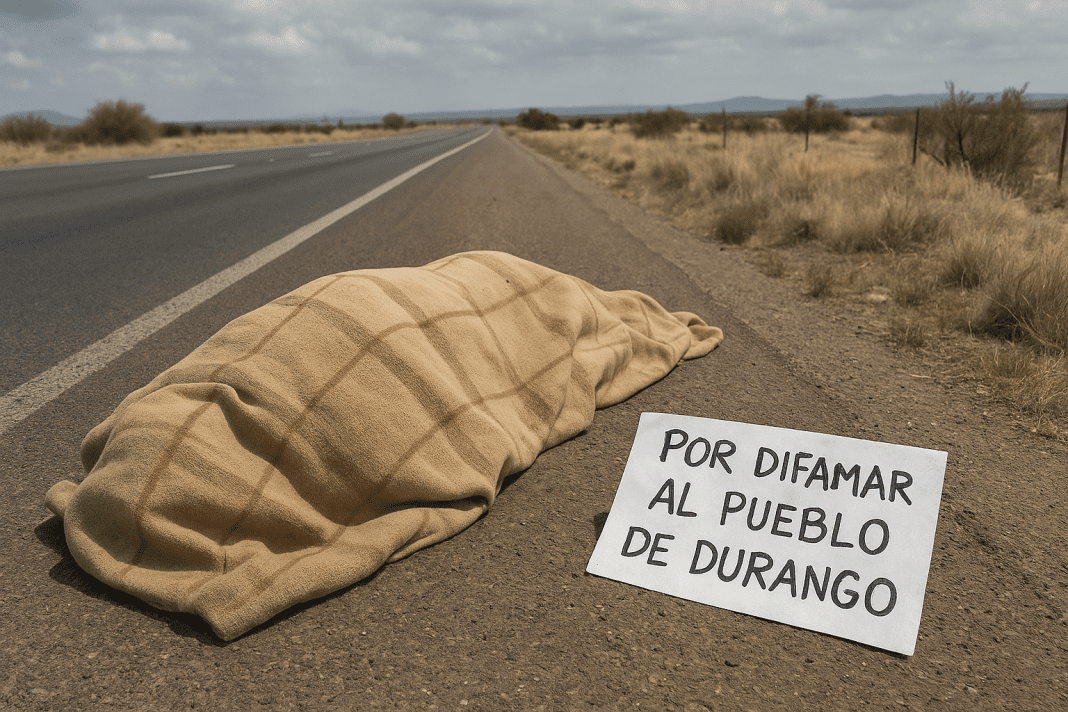A Mexican journalist who reported on organized crime and drug cartels was found dead on a highway over the weekend, shocking and saddening the media community. On Saturday morning, authorities discovered the body of Miguel Ángel Beltrán, a journalist who worked for several local outlets, on a highway connecting Durango to Mazatlán, a city in the cartel-dominated state of Sinaloa.
Mysterious Death on the Durango–Mazatlán Highway
Local news outlet Contexto de Durango, where Beltrán had worked, reported that authorities found his body wrapped in a blanket. Someone had placed a handwritten note beside him — a chilling message often linked to the cartels’ method of intimidation. The note reportedly said, “For spreading false accusations against the people of Durango.”
Authorities have not yet identified who carried out the killing, but criminal groups in Mexico often use such warnings to silence journalists, activists, and officials who expose their operations. The state prosecutor’s office is gathering more information, though it has not yet issued an official statement.
Sheinbaum rejects U.S. airstrike talk on cartels; vows to defend Mexico sovereignty
Beltrán’s son identified his body and said he last saw his father on Thursday when they both left for work. The sudden disappearance and the way the killers left the body indicate that they planned the attack to send a message.
Life and Work of the Brave Journalist
Miguel Ángel Beltrán was a familiar name in local journalism circles. Over the years, he had contributed to multiple media outlets, including Contexto de Durango. He also managed his own blog and TikTok account, where he covered stories about crime, public safety, and community events.
Just a few days before his death, the journalist posted a video on TikTok discussing the arrest of a suspected gang leader. His coverage of sensitive topics related to drug cartels often attracted attention, not just from his readers but also from those involved in criminal networks.
According to his colleagues, Beltrán was passionate about bringing real stories to the public, even when doing so meant facing risks. Reporting on drug trafficking and organized crime in Mexico is considered one of the most dangerous beats in journalism. Many journalists in the country receive threats for simply doing their jobs — telling the truth about corruption, violence, and injustice.
Canada and Mexico strengthen trade and security cooperation amid US tariffs
In a statement shared on social media, Contexto de Durango expressed deep sorrow over his death: “We deeply regret the passing of our fellow journalist, Miguel Ángel Beltrán. The Contexto de Durango team joins in the grief that overwhelms his family and friends, wishing them strength and swift acceptance in the face of this irreparable loss.”
The outlet described Beltrán as a dedicated journalist who believed in informing the public despite the dangers that came with the job.
Mexico’s Deadly Reality for Journalists
Mexico has become one of the most dangerous countries in the world for journalists, according to Reporters Without Borders (RSF). Journalists who investigate topics like drug cartels, corruption, or organized crime often face death threats, kidnappings, or violent attacks.
So far this year, Beltrán is the ninth journalist killed in Mexico. Many of these cases remain unsolved, adding to the growing concern about the lack of protection and justice for media professionals.
In many parts of Mexico, cartels control not just the drug trade but also influence local authorities. This power makes it difficult for journalists to operate freely or safely. Those who publish reports that the cartels see as damaging often become targets.
Organizations such as the Inter American Press Association (IAPA) and Reporters Without Borders (RSF) condemned the killing of journalist Miguel Ángel Beltrán and urged authorities to ensure his murder does not go unpunished.
U.S. Demands Mexico Arrest Cartel-Tied Politicians—Tariffs Loom if Sheinbaum Fails to Act
Both groups called for stronger protections for journalists in Mexico, where violence against the press is widespread. Investigators believe the note found beside Beltrán’s body suggests his killing was linked to his reporting.
Dozens of Mexican journalists have faced similar attacks, often after receiving threats over their coverage of crime and corruption. Despite repeated appeals, few cases lead to convictions.
For many reporters in Mexico, journalism remains an act of courage carried out under constant risk. Beltrán’s death adds to the long list of journalists who have lost their lives for telling the truth.

